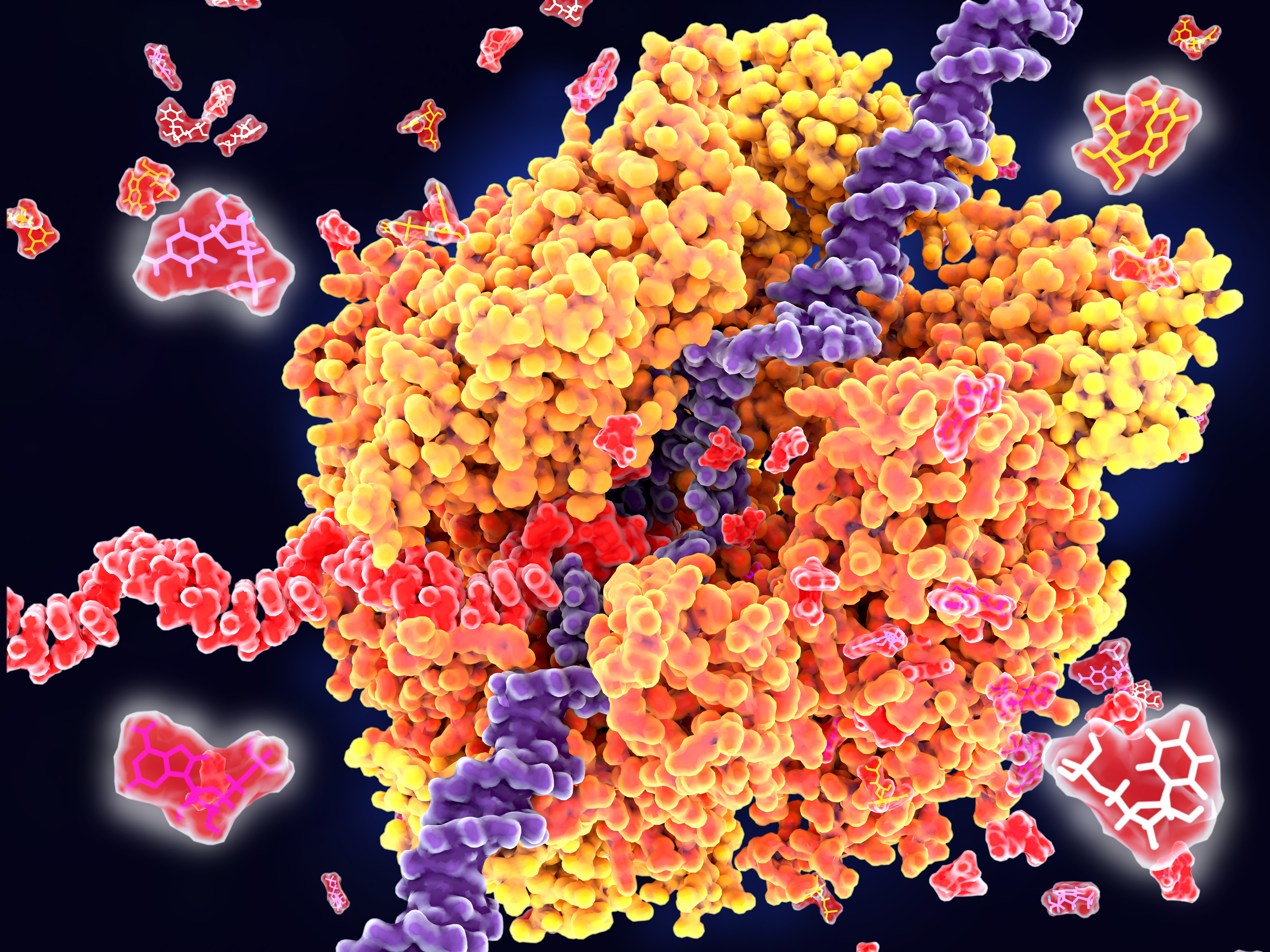
Transcription is the production of RNA from a DNA sequence. It’s a necessary life process in most cells. Transcription performed in vitro is also a valuable technique for research applications—from gene expression studies to the development of RNA virus vaccines.
During transcription, the DNA sequence is read by RNA polymerase to produce a complimentary, antiparallel RNA strand. This RNA strand is called a primary transcript, often referred to as an RNA transcript. In vitro transcription is a convenient method for generating RNA in a controlled environment outside of a cell.
In vitro transcription offers flexibility when choosing a DNA template, with a few requirements. The template must be purified, linear, and include a double stranded promoter region. Acceptable template types are plasmids or cloning vectors, PCR products, synthetic oligos (oligonucleotides), and cDNA (complimentary DNA).
In vitro transcription is used for production of large amounts of RNA transcripts for use in many applications including gene expression studies, RNA interference studies (RNAi), generation of guide RNA (gRNA) for use in CRISPR, creation of RNA standards for quantification of results in reverse-transcription quantitative PCR (RT-qPCR), studies of RNA structure and function, labeling of RNA probes for blotting and hybridization or for RNA:protein interaction studies, and preparation of specific cDNA libraries, just to name a few!
In vitro transcription can also be applied in general virology to study the effects of an RNA virus on a cell or an organism, and in development and production of RNA therapeutics and RNA virus vaccines. The large quantity of viral RNA produced through in vitro transcription can be used as inoculation material for viral infection studies. Viral mRNA transcripts, typically coding for a disease-specific antigen, can be quickly created through in vitro transcription, and used in the production of vaccines and therapeutics.
During development and manufacturing of RNA vaccines and RNA therapeutics, sometimes the immunogenicity of the RNA transcript becomes a problem. When the RNA is introduced to the host, it causes an immune response that can lead to degradation of the RNA, which would render the vaccine or therapeutic useless. In many cases, the use of modified nucleotides (rNTP’s) during transcription can help alleviate this concern.
Modified nucleotides are nucleotides that are derived from a typical nucleotide. When incorporated into RNA, modified nucleotides change the way the host “sees” the RNA transcript to decrease detection by host immune cells and nucleases. Modified nucleotides are currently being studied in the development of vaccines, particularly against cancer and RNA viruses, such as Zika virus. The three most commonly used modified nucleotides in vaccine development and production are Pseudouridine-5’-Triphosphate ( pseudo-UTP, Ψ), one-Methylpseudouridine-5’-triphosphate (m1Ψ), and 5’-methylcytidine (m5C).
Promega offers several systems for performing in vitro transcription, including Riboprobe® Systems for labeled probes, RiboMAX™ Large Scale RNA Production Systems, and RiboMAX™ Express Large Scale RNA Production System. Promega scientists recently demonstrated the use of modified nucleotides with the RiboMAX™ Large Scale RNA Production System. Read more about that study here.
Questions about this protocol or other applications? Contact Technical Services through our website.
Further Reading
Jahanafrooz, Z. et al. (2020). Comparison of DNA and mRNA Vaccines Against Cancer. Drug Discovery Today 25, 3. http://eprints.thums.ac.ir/2029/1/1.pdf
Pardi, N. et al. (2020) Recent Advances in mRNA Vaccine Technology. Curr Opin Immunol. 65, 14–20.
Kariko, K. (2019) In vitro transcribed mRNA Therapeutics: Out of the Shadows and into the Spotlight. Molecular Therapy 27: 4, 691.
Jackon, N.A. et al. (2020) The promise of mRNA vaccines: A Biotech and Industrial Perspective. 5:11.
Related Posts
Latest posts by Leah Cronan (see all)
- Mass Spec for Glycosylation Analysis of SARS-CoV-2 Proteins Implicated in Host-Cell Entry - November 10, 2020
- Proteomics from a Different Point of View: Introducing ProAlanase, the Newest Mass-Spec Grade Protease from Promega - August 7, 2020
- Go fISH! Using in situ Hybridization to Search for Expression of a SARS-CoV-2 Viral Entry Protein - July 10, 2020
